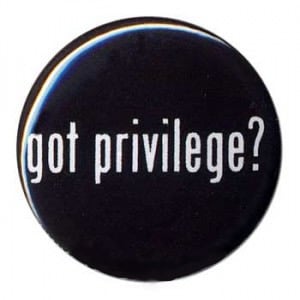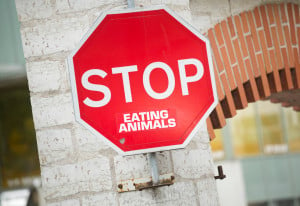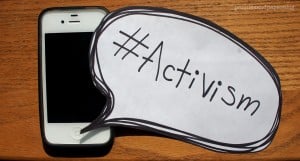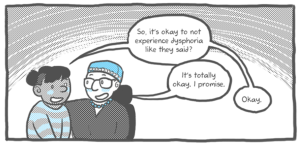
Source: iStock
One of the most misunderstood effects of sexual assault is that it makes us believe lies. It makes us doubt our value, our worth, and our humanity.
Being assaulted by another person – and then mistreated by society – can make us forget that we have certain personal, inalienable rights that must be respected.
And that subconscious doubt and self-blame can be a huge obstacle in our healing process.
It’s difficult to heal and recover when we don’t truly believe we deserve healing and recovery.
But by gently reminding ourselves of our rights every day, we can begin to get better. We can start identifying the harmful, internalized messages that plague us, and we can begin to free ourselves from those painful lies.
When that doubt begins to roll in, remind yourself of these important rights and why you have them.
Repeat these truths until they sink in. Say them to yourself aloud. Scribble them in a diary. Imagine the words dancing in front of you. Sing it in the shower.
Together, let’s reclaim the rights that have been denied to us – both by our perpetrators and by society.
1. We Have the Right to Our Own Bodies
An incredibly personal right of ours has been violated: our bodily autonomy.
And when someone treats you like they’re entitled to your body, it’s difficult to remember that your body is yours.
I vividly remember standing naked in front of the mirror after my first sexual assault, struggling to recognize myself, struggling to feel like I was really inside my own body.
Part of the reason why I felt so alienated from my body was because I felt like I had no control over it – if it was my body, why could someone else violate it so easily? And how could something I’ve lived with my entire life be the site of so much violence?
This led to me participating in a great deal of self-destructive behavior – which ultimately only led to more pain and difficulty.
An important part of healing after sexual violence is recognizing the harm that was done to you. Bear in mind that you’ve always had the right to your own body and that your assault was a violation of this right.
Reminding myself, over and over again, that my body is, indeed, my own was an important part of my healing. Slowly, I began to make peace with my body.
2. We Have the Right to Be Believed
When I first spoke out about my rape, my biggest fear was being doubted by those around me. I was scared that people wouldn’t believe me when I shared such a personal part of my life.
Often, people who have been sexually assaulted are accused of lying. Many of us have also been blamed for “provoking’” our own assault.
And that hurts. It’s incredibly painful.
Sometimes, when people doubt your truth, it makes you doubt your truth.
But the truth is that those who doubt your pain don’t deserve to be in your life.
We all deserve to be believed and not doubted. We have the right to create a support network free from those who doubt and blame us.
We have the right to surround ourselves with people who believe us and validate our struggles, and to break contact with people who hinder our healing.
3. We Have the Right to Our Stories
There’s a lot of pressure on people to speak openly and frankly about their experiences of sexual assault – especially in feminist and social justice communities.
The truth, though, is that you don’t owe anyone your story.
If you choose, you never have to discuss your assault. While society’s silence around sexual assault can add to the stigma, individuals don’t have a responsibility to disclose details of their experiences to prove that they’re against sexual violence.
Nor do we have a responsibility to share our stories to “inspire” others.
Similarly, if you want to talk about your assault, you have every right to do so. Nobody is allowed to make you feel ashamed, doubted, or blamed for being open about your trauma.
You might feel like you want to discuss some details of your rape publicly, while you want to avoid talking about other aspects. That’s also perfectly okay.
Maybe you’re like me and you frequently write about your assault on the big, wide Internet. Maybe you only disclose some information with select people. Maybe you never discuss it. That’s all okay.
In any case, you have the right to choose what you tell people, who you tell, how you tell them, and when you tell them – nobody else should.
4. We Have the Right to Be Centered in Anti-Rape Movements
I adore my fellow anti-rape activists. I believe our community has done so much to change the way society approaches the topic of rape and rape culture.
However, sometimes we make monumental screw-ups.
One mistake that we constantly, and often unwittingly, make is marginalizing survivors and victims within our own movements.
And yup – even activists who have been assaulted make this crucial mistake.
This can show up in a number of ways. Sometimes, we expect people to share “inspiring” stories of their assaults. Sometimes we fail to prioritize the psychological and emotional health of survivors and victims. Sometimes we dehumanize one another – and ourselves – by forgetting the importance of self-care.
Never forget that you have the right to call in activism that doesn’t center those who’ve experienced sexual violence first-hand. After all, these movements are meant to care for us and our traumas.
5. We Have the Right to Feel Safe
It’s difficult to feel safe and secure after experiencing something as traumatic as sexual violence.
We have the right to do what we can to help ourselves feel more safe and comfortable – including being in a space away from perpetrators and those who support them.
If you feel that you need to remove people from your life in order to feel safe, you have every right to do that.
If you want to ask friends, family, and community members to stop supporting your perpetrator, you have every right to do that.
If you feel that you need to move into a new workspace, home, or university to give you a sense of security, you have every right to do that.
If you want to take actions to ensure your perpetrator doesn’t contact you, you have every right to do that.
You have the right to do all of the above, and you have the right to have all of those actions supported by your loved ones.
Every human should be allowed to feel safe, secure and free from fear. You are no exception.
6. We Have the Right to Heal in Our Own Ways
Everybody heals differently.
I’ve repeated this mantra to myself in the most difficult periods of my life, and I want to share it with all of you.
When you find yourself comparing your healing to others’, remind yourself that everyone has the right to heal in their own ways.
The way we hurt is different for everyone, and every trauma is difficult. It only makes sense, then, that recovery looks different for everyone.
Maybe your healing looks like forgiving your perpetrator, and maybe it doesn’t. Maybe it looks like anger coarse enough to split mountains, but maybe it looks as peaceful and gentle as a stream gliding over rocks. Maybe it’s both – maybe it changes.
Maybe healing takes a long time for you. Maybe you feel like you recovered from your trauma really quickly. Maybe it’s tumultuous, and maybe it’s steady.
Maybe you never feel like you’re healing. And that doesn’t make you a bad person, nor does it mean you don’t deserve healing.
No matter what journey you undergo after your assault, never forget that you are loved, cared for, and important.
***
In a society that mistreats those of us who’ve been sexually violated, it’s difficult to remember that we have these rights – to remember that we deserve validation, compassion and kindness.
But remembering these important, inalienable rights can be a key step in finding peace and healing.
[do_widget id=’text-101′]
Sian Ferguson is a Contributing Writer at Everyday Feminism and a queer, polyamorous, South African feminist who is currently studying towards a Bachelor of Arts majoring in English and Anthropology. Originally from Cape Town, she now studies at Rhodes University in Grahamstown, where she works as vice-chair of the Gender Action Project. She has been featured as a guest writer on websites such as Women24 and Foxy Box, while also writing for her personal blog. Follow her on Twitter @sianfergs. Read her articles here.
Search our 3000+ articles!
Read our articles about:
Our online racial justice training
Used by hundreds of universities, non-profits, and businesses.
Click to learn more




















